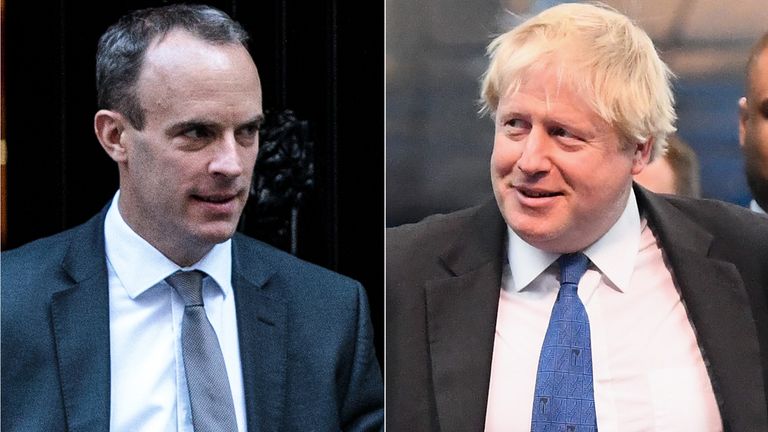Brexiteers’ support not enough for vote to pass
Theresa May’s withdrawal agreement has been defeated by MPs, the latest setback for a beleaguered prime minister whose days in office are numbered.
On the day Britain was originally supposed to leave the European Union, the prime minister’s gamble of splitting her deal into two parts backfired.
The withdrawal agreement was rejected by 344 votes to 286, increasing the chances of a lengthy delay to Brexit.
It means Britain has missed an EU deadline to get an extension until 22 May. It now has until 12 April to come up with a way forward, ask for a longer extension or opt to try and leave without a deal.
A stream of Conservative MPs who had voted to reject the prime minister’s deal in its entirety in two previous “meaningful votes” had pledged to support her in this instance, but 34 still rebelled.
Backers included the likes of Boris Johnson, Dominic Raab and Iain Duncan Smith, but the number of switchers was not enough to get the withdrawal agreement over the line.
Northern Ireland’s Democratic Unionist Party stood firm and voted against it because of the party’s concerns about the Irish border backstop.
Jeremy Corbyn’s Labour also opposed the agreement, with only five of the party’s MPs voting in favour.
Mrs May promised earlier this week – at a showdown meeting of Tory MPs – to quit if her deal was passed and allow a new leader to take on the task of negotiating the terms of Britain’s future relationship with the EU.
But while the pledge won round a number of Tory opponents, it had the opposite effect on wavering Labour MPs.
Ahead of the vote, the party’s Brexit spokesman Sir Keir Starmer told Sky News that voting for the withdrawal agreement would be voting for Brexit “with no idea where you’re heading”.
He said the party could not set in train a series of events that would see Mrs May replaced by a new PM.
Reacting to the government’s latest defeat, Mrs May said the outcome was a matter of “profound regret” and had “grave” implications.
The PM said the “legal default” is now for Britain to leave the EU on 12 April.
“This is not enough time to agree, legislate for and ratify a deal, and yet the House has been clear it will not permit leaving without a deal,” she continued.
“And so we will have to agree an alternative way forward.”
This was “almost certain” to involve the UK having to take part in European Parliament elections in May, she said.
A way forward could emerge on Monday, when MPs have a second chance to give their verdict on a range of Brexit alternatives.
The EU has called an emergency summit on 10 April to discuss the implications of the vote.
Talk of a general election being the only way out of the impasse has increased in recent weeks.
And there was a hint that Mrs May was moving towards that view, when she said: “I fear we are reaching the limits of this process in this House.”
After the vote, her official spokesman refused to deny four times that the PM is now considering an election.
Mr Corbyn called for Mrs May to quit and for there to be an election.
“On Monday, this House has the chance, and I say to all members, the responsibility to find a majority for a better deal for all the people of this country,” he said.
“The House has been clear this deal now has to change. There has to be an alternative found.
“If the prime minister can’t accept that then she must go. Not at an indeterminate date in the future, but now, so that we can decide the future of this country through a general election.”
Steve Baker, deputy chairman of the European Research Group of eurosceptic Tory MPs, said the PM should step down immediately.
“I regret to say it is time for Theresa May to follow through on her words and make way so that a new leader can deliver a Withdrawal Agreement which will be passed by Parliament,” he said.
Nigel Dodds, the DUP’s Westminster leader, said the PM had squandered “numerous” opportunities to rectify the “deficiencies” with the backstop.
“Over the coming weeks and months, we will continue to play a central role to chart a route that respects the democratic desire to leave the European Union but that does so in a way that strengthens our United Kingdom,” said Mr Dodds.
More follows…
Source: Read Full Article



